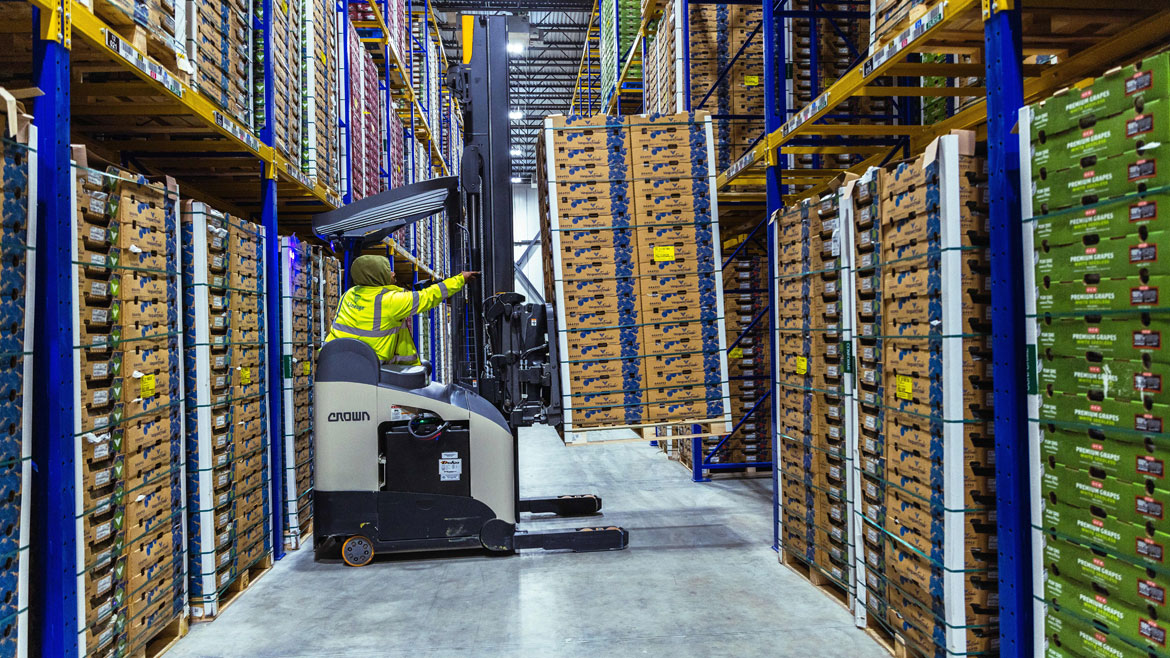Refrigerated warehousing in Georgia plays an integral role in supporting the state’s diverse and growing agricultural, food processing, and pharmaceutical industries. Georgia’s strategic location as a transportation hub makes it an ideal destination for refrigerated storage facilities, preserving and distributing temperature-sensitive goods. In this blog, we’ll dive into the world of refrigerated warehousing in Georgia, uncovering key statistics, educational avenues, and valuable insights that define this dynamic industry.
Cool Insights: The Landscape of Refrigerated Warehousing in Georgia
Key Statistics:
- The refrigerated warehousing industry in Georgia is a vital contributor to the state’s economy, with an estimated value of over $X billion in 2021. This industry provides employment opportunities for a significant workforce and contributes substantially to the state’s revenue.
- Georgia’s refrigerated storage facilities cater to a diverse range of products, including fruits, vegetables, poultry, and pharmaceuticals. These facilities handle approximately X million tons of perishable products each year.
- The demand for refrigerated storage space in Georgia is on a consistent growth trajectory, with an annual growth rate of X%. This growth is driven by the state’s flourishing food processing industry and its strategic location within the Southeastern United States.
- Georgia’s agricultural sector, particularly in the production of peaches, pecans, and poultry, heavily relies on refrigerated warehousing facilities to maintain product quality and ensure year-round distribution.
Educational Pathways in Refrigerated Warehousing:
The effective operation of refrigerated warehousing facilities relies on a well-trained workforce. Georgia offers a variety of educational options to meet these demands:
- Refrigeration Technology Programs: Several technical and vocational schools in Georgia offer comprehensive refrigeration technology programs. These programs equip students with the skills and knowledge necessary to work with complex refrigeration systems.
- Certifications: Industry-specific certifications such as Certified Cold Storage Manager (CCSM) and Certified Refrigeration Specialist (CRS) are highly sought after by professionals in this field. Georgia hosts a range of institutions and organizations that provide training and certification opportunities.
- Safety and Compliance Training: Georgia enforces stringent regulations governing refrigerated warehousing operations, with a particular emphasis on food safety. Training programs and courses focusing on safety and compliance are essential to ensure the quality and safety of stored products.
Sustainability Initiatives in Refrigerated Warehousing:
Georgia’s refrigerated warehousing industry is actively engaged in sustainable practices:
- Energy Efficiency: Many facilities have embraced energy-efficient technologies, which not only reduce operating costs but also reduce their carbon footprint.
- Renewable Energy Integration: Some refrigerated warehouses in Georgia have adopted renewable energy sources such as solar panels and wind turbines, further reducing their environmental impact.
- Waste Reduction: The implementation of waste reduction and recycling programs is a crucial aspect of reducing the environmental impact of refrigerated warehousing operations.
The Future of Refrigerated Warehousing in Georgia
As the refrigerated warehousing industry in Georgia continues to evolve, it is well-positioned to meet the increasing demands of the global supply chain. With advancements in automation, the integration of IoT technology, and a steadfast commitment to sustainability, Georgia’s refrigerated warehousing industry is poised to remain at the forefront of efficient and environmentally responsible cold storage.
In conclusion, refrigerated warehousing in Georgia stands as a cornerstone of the state’s economy, preserving and distributing perishable products not only within Georgia but throughout the Southeastern region. Through education and sustainability initiatives, this industry is well-equipped to meet the ever-changing needs of a dynamic world, solidifying its place as a vital sector in the heart of the Southeastern United States.


 Dave McGowan has been a member of the WEL Family since May 1989. He is a husband and father of two children. Dave is also a U.S. Army veteran and served in Vietnam in 1971-1972, and he attended driving school soon after he was released from the military in 1974.
Dave McGowan has been a member of the WEL Family since May 1989. He is a husband and father of two children. Dave is also a U.S. Army veteran and served in Vietnam in 1971-1972, and he attended driving school soon after he was released from the military in 1974. During his career with WEL, Phil has worked as a driver, dispatcher, terminal manager and customer service manager. He says he always was a driver first, though non-driving jobs taught him financial management that helps him as an owner-operator.
During his career with WEL, Phil has worked as a driver, dispatcher, terminal manager and customer service manager. He says he always was a driver first, though non-driving jobs taught him financial management that helps him as an owner-operator.